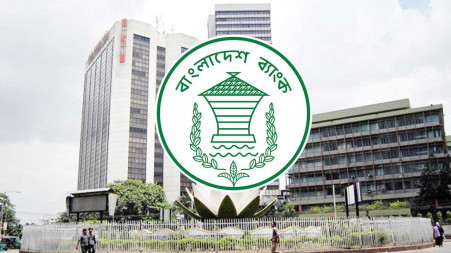Highlights
Tk11 lakh crore of Tk18 lakh crore in bank loans are now distressed assets
Only 7-9 banks meet international standards; almost 40 are substandard
NPLs could reach 30-40% in some banks due to governance failures
New laws aim to aid mergers, toxic asset management, and resolution
Experts call for Bangladesh Bank autonomy and end to political interference
About 15 banks now face acute liquidity crises due to years of unchecked “looting”, and one man was enough to bring down multiple banks, City Bank Managing Director Mashrur Arefin has said.
Noting that S Alam Group destroyed Bangladesh’s banking sector, he also said, “Just as one individual can ruin banks, one or two honest directors can also be enough to ensure their success.”
Keep updated, follow The Business Standard’s Google news channel
He made the remarks today (21 September) at a panel discussion on “Bank Crisis, Reforms and Regulations – The Implications on Bank Governance” held at Dhaka University’s Nabab Nawab Ali Chowdhury Senate Building.

Mashrur Arefin further noted that distressed assets in the banking sector have risen to Tk11 lakh crore, accounting for about 61% of the Tk18 lakh crore in outstanding loans. Of this, Tk4 lakh crore are classified as non-performing loans (NPLs), while the rest include rescheduled, written-off, and high-risk loans.
Earlier in December last year, distressed assets in the country’s banking sector stood at Tk7.56 lakh crore, equivalent to 45% of total outstanding loans, exposing the fragile health of the financial system.
Turning to the draft Banking Company Act, he questioned the feasibility of its provision requiring 50% of directors to be independent, arguing that this penalises high-performing banks while failing to address the root problem, corruption by individuals.
“Expecting independent directors to be like angels dropping from heaven is unrealistic,” he remarked.
Out of a total 60 banks in the country, only 7-9 can be considered international standard
Mashrur Arefin, City Bank MD
The draft law also caps a family’s stake in a bank at 10%, while broadening the definition of “family” to include extended relatives.
Arefin argued that this misses the point. “The biggest looting in the sector has been carried out under anonymous names, not through legal shareholding,” he added.
Referring to “years of unchecked looting”, Mashrur noted that out of 60 banks in the country, only 7-9 meet international standards, nearly 40 are substandard, and about 15 face acute liquidity crises.

In some distressed banks, depositors face extreme hardship, large deposits are repaid only in token amounts monthly. Effectively, a bank run has taken place in these institutions, though stronger banks remain insulated and continue to enjoy the trust of foreign partners.
He commended the government’s efforts and noted, “The foreign exchange crisis has been largely resolved, with taka stabilising after sharp depreciation and trade and current account balances turning positive. Consolidation is underway, with five banks set for merger, and some troubled institutions may recover due to strong brand credibility.
“The new Bank Resolution Act, introduced by ordinance, is another milestone, providing tools for mergers, creation of asset management companies to absorb toxic assets, and structured government intervention in failing banks.”
Other bankers echo concerns
Sohel RK Hussain, managing director of Bank Asia, pointed out that 95% of bank capital comes from depositors, while only 5% comes from directors.
Despite this, in many cases, directors run banks as they please, often disregarding depositor interests. He stressed the need for strict action against such irregularities to restore discipline and governance.
He provided a stark analysis of the ongoing banking crisis in Bangladesh, describing it as one of the most serious challenges the sector has ever faced.
95% of bank capital comes from depositors, while only 5% comes from directors. Despite this, in many cases, directors run banks as they please, often disregarding depositor interests.
Sohel RK Hussain, Bank Asia MD
He warns that non-performing loans (NPLs) could rise to 30-40% in some banks, making them nearly impossible to save. The root cause, he argues, lies in systemic governance failures, compounded by direct interference from the government, including the prime minister and her associates.
Sohel explains that traditional oversight mechanisms – checks and balances between boards and management, supervision by auditors, rating agencies, the Securities and Exchange Commission, and the central bank – have all collapsed over the past seven to eight years.
Mohammad Ali, managing director of Pubali Bank, alleged that some Islamic and state-owned banks were misused for corrupt practices during the previous government’s tenure.
He noted that state interference led to board changes in certain Islamic banks.
He emphasised that restoring good governance in the banking sector requires greater autonomy for the Bangladesh Bank, and its decisions should be free from political or state interference.
The event, jointly organised by the University of Asia Pacific (UAP), University of Dhaka, and Germany’s OTH Amberg-Weiden, featured detailed discussions on corporate governance in the banking sector, weaknesses in risk management and regulatory frameworks, and the urgent need for reforms.
The seminar was moderated by Dr Mahmud Osman Imam, a professor at the University of Dhaka’s Faculty of Business Studies. He emphasised the importance of strengthening governance structures, improving risk management, and ensuring strict enforcement of regulatory standards in the banking sector.


